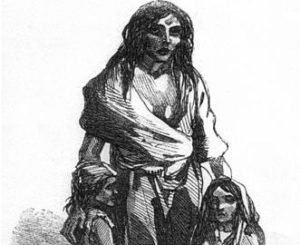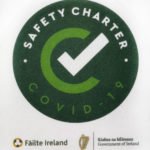


John Connell, the second of our judges, had the task of selecting the winners of the Literary Festival 2020 Short Story Competition.
John Connell is a multi award winning author, film producer and former investigative journalist. At 33 he is a United Nations (Australia) Media peace prize winner and 2 time Walkley winner for his human rights documentaries. He worked for several years as an investigative journalist covering the Sri Lankan Civil War and indigenous human rights cases and his work lead to the freeing and resettlement of 17 Tamil Refugees from wrongful imprisonment by Australian authorities. An award winning filmmaker his documentary programs have won over a dozen international awards including 4 webbys for Africa to Australia (SBS) the first online documentary made in Australia. His No 1 bestselling memoir The Cow Book was published to international acclaim spending 37 weeks in the Irish bestseller list and is currently being adapted to a documentary produced by Connell and Fired Up Films. His next book 42.2 will be release in Autumn 2020.
Again we ended up with a top three. 3rd prize winner has chosen not to let us share his story and we respect that and wish him good luck for the future.
Since the stories are longer than the poems they will be published separately. Here is the 1st prize winner of our Literary Festival 2020 Short Story Competition from Eamonn McGuinness with his story Our Names into the Sea. Congratulations Eamonn
It was a steaming day, and everything had to be cleaned and tied down. We were pulling anchor at twelve and would have our lunch while travelling to the next pearl farm. By half eleven we were ready to go and had our small break, smoko, sitting with our feet off the side of the boat. There was a timetable for those to keep watch. I wasn´t on until ten that night so had the afternoon and evening to do what I wanted. During steaming, people caught up on sleep, read, listened to music, watched films, talked and drank. Some stayed on deck and watched the ships and islands passing. On a work day, we chipped shell from six a.m. to four p.m., using mallets and chisels. We pulled cages from the water with ropes and winches, put them through a washer and got rid of any barnacles, seaweed or other life-form growing on the outside. The dead shells were searched for pearls and fresh meat; the empties tossed back into the water. Anything dead was made note of. People snuck pearls away and made necklaces of them. Some pearls got lost, washed off the side of the boat. We saw every sunrise and sunset. Steaming days broke the monotony. The atmosphere was different, more relaxed and open; less savage. The previous night was Blair´s goodbye party. He was moving to Perth after this swing. Pedro, the captain, warned that if any of us didn´t get up for work we´d be off the ship.
I was on the upper deck with the weights and bean-bags when I heard Shane scream. Shane was always screaming but these sounded more frantic and desperate. The lower deck was cleared. It was like an empty football stadium before the crowds. A minute later, the doors to the kitchen burst open and Shane and Pedro dropped Jim´s twisted and lifeless body on the ground, beside the stairs, in the shade of an awning. The sun was high and strong and reached his feet. His middle section was compressed so tight he looked like he’d starved himself. His eyes had grown massive, as if they were going to pop out of their sockets, and his mouth was set in a strange grimace, like he´d been thinking about something important when he died. Pedro covered him with a blanket, but left his head showing, propped on a pillow.
The whole crew were called on deck and we stood, twenty-five of us, in a semi-circle. Pedro faced us, his back to the sea and he said how Shane had found the coils of the anchor wrapped around Jim’s hands and stomach. Plans had changed. Two planes were on-route: the bosses from Broome and an emergency response team. We would steam to the plane landing ten kilometres away. We´d all have to give a statement in town. Pedro sent us to have showers, pack up and get ready to leave. Then we´d eat, sit and wait. Pedro and Blair pulled anchor.
Pedro took out the remaining cases of beer and told us to get stuck in. He gave a can to everyone and we toasted Jim. The cans were mid-strength, small and red. Full-strength wasn´t allowed on board. Each week a person was given twenty-four cans. They were bartered, used as presents and taken for favours. Each one was marked in black permanent marker with the owner´s name to stop people stealing. The night before, for Blair’s party, a group of us had gone over to Cockatoo Island and bought cases of beer and spirits. There couldn´t be a trace of the full-strength left onboard, so every bottle had to be refilled with water and dropped into the sea.
Shane stood with his back to us. He was topless and his long blond hair flowed down his back, sunglasses pushed on top of his head. Pedro tapped his arm and handed him a can. Shane downed it between sobs and dropped it overboard. He released that first can like a rose petal falling. The can bobbed in the water and we watched it for a long time. The second he threw and the third he crushed and pounded against the foam. We looked at Pedro. He said nothing, so everyone started doing it. They were like a trail of breadcrumbs on our way to the landing; a strange, unspoken tribute. All the cans marked in black permanent marker. We were throwing our names into the sea and in the background, they slowly faded out.
After twenty minutes of drinking, I got changed, packed my bag and went into the kitchen to help Jules prepare lunch. She was sobbing and had music blaring, so we didn´t have to speak. By the time we reached the landing, Shane was hollering to the sharks that followed the boat. They were the first thing I saw when I arrived. We threw our scraps to them after every meal. They were always being trailed by tiny fish. I was told they were harmless and didn´t bite but they looked menacing. Their nickname was ´sleepy sharks´. The night before, some of the lads swam in the water and pushed each other overboard, but I stayed on deck and took videos. The sharks swam near them and one was caught by a flailing leg, but didn’t react. On my camera, I had a video that Blair filmed of me and Jim eating fish eyeballs and messing around. Jim slapped my back and said: You’re alright, Irish, you´re alright.
Jules called everyone in for food. Some went down to the dining hall and others took their plates on deck. Shane was on his hunkers trying to eyeball the sharks, calling them pussies and spitting in their direction. I watched Pedro go to the fridge and take out two of Jim’s cans and go over to Shane. They toasted Jim.
There´s gonna be an investigation, Shaneo.
I know.
Don´t be too messed up when the bosses arrive, it won´t look good.
Pedro walked towards the kitchen and Shane mock saluted his back. Shane called his name and Pedro stopped and turned around.
You ever meet his missus?
No.
After the last swing, we went straight to town, then back to his and she cracked the shits, totally went off on one.
True?
Damn right. Didn’t she, Jim?
He was still on his hunkers and speaking slowly. I was at the table, not eating. Jim looked like he was sleeping in the shade of a tree.
He fucking knows.
It weren’t her fault, Shaneo.
No, but she deserves this.
Leave it, Shaneo.
Rooting around while he was away.
That´s your last beer, the bosses will be here soon.
You can´t get pissed on this shit, Pedro, you know that, bro. There´s a lot happened between them no one knows but me.
This ain´t the time.
Oh, I´ll keep quiet bro.
What happened down there?
I don´t know, bro. He coulda pulled anchor in his sleep. You know that.
Shane finished the can, stood up, threw it in the air and with his bare foot kicked it off the boat.
But he was tired, you know? Yawning and talking about going back to bed. I was ribbing him about being an old, fat lightweight. Then you called me. Two minutes I was gone for, less.
Shane started sobbing. In Jim’s direction, he said:
The deck filled again. Bags were dropped by the stairs. We waited for the planes. There were no cans left and since we´d stopped moving, the ones in the water had formed a dirty huddle. They knocked into the boat making soft consistent dins. I could tell by Pedro´s scrunched up face he wasn´t happy. He kept looking over the side, counting. Shane finished Jim´s beer. He poured the last can into the sea. People went from looking at Jim to looking at each other, to looking at the sky, watching for the planes.
Shane started howling. The sound was like wind in a fireplace and didn´t seem to end. Pedro kept looking towards him. I sat for a long time, doing nothing, with a full plate in front of me. People were talking but I didn´t make eye contact or respond. I looked at my plate, then at Jim. The others sat around crying, cursing, smoking and spitting into the sea. One of the girls prayed. Someone got sick. Some walked around or sat on the speedboats. People whispered the odd word about Jim´s family. There was some movement as the first plane came into view. People stood up. Pedro told us to clear our plates and bring our bags out. I went over to the edge and scraped my uneaten food into the sea and watched a shark eat it in one go. Shane was hunched down near me and glanced up quickly before looking away.
I grabbed my bag from the bedroom and put it beside the others. I ran my hands over my face and through my hair, then blew out as if I had a mouthful of smoke. I felt an urge to do something. I tried to shake it off by stretching and walking around. I wanted to see Jim up close. We´d got to know each other during the three swings we´d done together. We didn´t talk much, but that wasn´t unusual. I hadn´t seen a dead body before. I sat down and stared over at him. He really did look like he was sleeping. I knew I´d never be back here, that once I arrived in Broome, I´d see none of these people again. I´d made that decision. It was that feeling, the leaving that overtook me. It was a sensation I´d missed and longed for without realising it. In spite of everything, I was happy. I was watching everyone and everything fade from view.
I knelt beside Jim. I knew people were looking. No one had gotten too close; as if afraid he was contagious. I took his cold face in my hands and looked at his dead eyes, high in their sockets. Then I kissed him on the forehead and said out loud, in my best Aussie accent: You’re alright Jim, you’re alright, bro. I held his face until I heard someone behind me move. I could hear the shuffling of feet, the door to the kitchen open and a slow murmur start. I was crying. The plane was circling and the noise was getting louder. My eyes were shut tight and my thumbs were underneath his ears. Come on, buddy, you´re alright, Jim.
When I opened my eyes, I saw Shane moving towards me, his face angry, his chest red and protruding. Before anyone could do or say anything I got up and ran with all my speed and strength. I ran past Shane, past the table where people were sitting, past the stairs, past the box of shoes, past Jules smoking, past Pedro giving orders, past the circle of bags, the fishing poles, the machinery, the stack of empty plates. Up ahead, the plane was landing. I ran past it all, past the glares, the words, the whispers, the eyes and dove straight into the ocean. When I came up and was bobbing in the sea and catching my breath, I didn’t think of the sharks or the plane. I ignored Pedro´s shouts and Shane’s taunts. I tried to see everyone´s face individually, to find some differences, something unique, but they all looked the same. They all had a look that said they never started anything properly or asked enough questions. For the first time, we looked like a united group.
The best way to keep in touch and to be aware of our events
Don’t forget to confirm your subscription in the Email we just sent you!

Please pre-book your visit over Christmas at least 24h in advance via Email or Online booking.
MondayClosed
Tuesday10:00 AM - 5:00 PM
Wednesday10:00 AM - 5:00 PM
Thursday10:00 AM - 5:00 PM
Friday10:00 AM - 5:00 PM
Saturday11:00 AM - 5:00 PM
Sunday11:00 AM - 5:00 PM
Adult €7.50
Children 10 to 16 €3
2 Adults & 2 Children €15
Adult is 16 years+
Family Ticket is 4 family members together
Children under ten are free but must be accompanied by an Adult

The Maria Edgeworth Centre is operated under the direction of the Edgeworthstown District Development Association (EDDA) – a Not for Profit Voluntary Community based registered charity Reg:223373. Registered Charity Number 20101916
© 2023 Maria Edgeworth Centre – All Rights Reserved
On the 17th of August 2024 as part of Heritage Week, with support from the County Heritage Officers, the Heritage Council, Longford County Council Libraries, Archives, Arts and Heritage,
IMMA, OPW and the Computer and Communications Museum Ireland on the NUIG Campus,
Ray Jordan and volunteers from the Maria Edgeworth Centre aim to simulate Edgeworth’s 1803 transmission by telegraph.
Click the link below to learn more or to register to attend either in person or via Zoom.
Join us for this recreation of a key moment in the history of communications